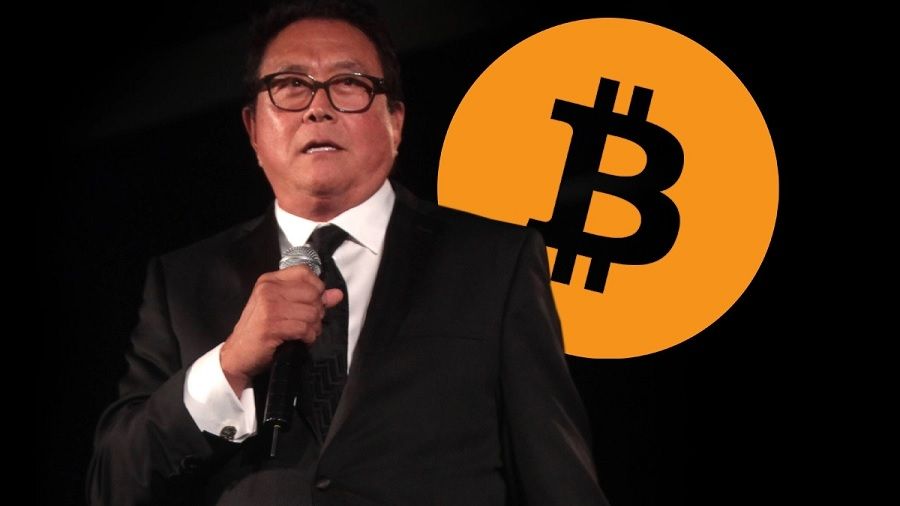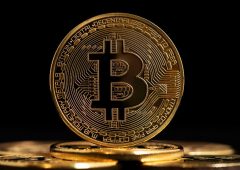U.S. Economy Will Crash and Bitcoin Will be the Salvation – Robert Kiyosaki
09.10.2024 9:00 1 min. read Alexander Zdravkov
Financial educator and author Robert Kiyosaki has raised alarms about the state of the U.S. economy, warning that the nation, despite its status as the largest global economy with a GDP of around $29 trillion, is on a downward path.
He criticized government leaders, particularly President Biden and Vice President Harris, for their policies and perceived dishonesty, which he believes threaten the country’s stability.
With the presidential election approaching, Kiyosaki has called for leaders who embody integrity, contrasting the current administration with historical figures like Washington and Lincoln.
He is particularly concerned about the rising national debt, suggesting it could jeopardize the financial security of Americans.
Kiyosaki advocates for investing in hard assets, such as Bitcoin, as a hedge against economic turmoil. He references predictions from Michael Saylor, who anticipates that Bitcoin could significantly increase in value, potentially comprising 7% of global capital by 2045.
Currently, Bitcoin is priced at about $62,000, inching closer to its all-time high. Kiyosaki views Bitcoin as a safer investment compared to traditional currencies, which are susceptible to inflation and devaluation, and believes it could play a crucial role in securing investors’ wealth in the future.
-
1
Are We Witnessing the Final Bitcoin Cycle as We Know It?
07.06.2025 16:00 2 min. read -
2
Institutions Now Hold Nearly a Third of Bitcoin – Here’s What That Means for the Market
12.06.2025 15:00 1 min. read -
3
Bitcoin at Risk of Deeper Pullback as Momentum Stalls, Analyst Says
07.06.2025 12:00 1 min. read -
4
Bitcoin Supply Crunch Deepens as Institutions Tighten Their Grip
05.06.2025 8:00 2 min. read -
5
UK Gold Miner Ditches the Precious Metal for Bitcoin, Shares Jump 40%
06.06.2025 14:00 1 min. read
Is Bitcoin a Missed Opportunity? This Billionaire Begins to Wonder
Philippe Laffont, the billionaire behind Coatue Management, is beginning to question his stance on Bitcoin.
Robert Kiyosaki Says Crypto Is Key to Building Wealth in a Failing System
Personal finance author Robert Kiyosaki is urging investors to rethink their approach to money as digital assets reshape the economic landscape.
Trump Targets Powell as Fed Holds Rates: Who Could Replace Him?
Federal Reserve Chair Jerome Powell is once again under fire, this time facing renewed criticism from Donald Trump over the Fed’s decision to hold interest rates steady in June.
Crypto Company Abandons Bitcoin Mining to Focus Entirely on Ethereum Staking
Crypto infrastructure firm Bit Digital is making a bold strategic pivot, abandoning Bitcoin mining entirely in favor of Ethereum staking and asset management.
-
1
Are We Witnessing the Final Bitcoin Cycle as We Know It?
07.06.2025 16:00 2 min. read -
2
Institutions Now Hold Nearly a Third of Bitcoin – Here’s What That Means for the Market
12.06.2025 15:00 1 min. read -
3
Bitcoin at Risk of Deeper Pullback as Momentum Stalls, Analyst Says
07.06.2025 12:00 1 min. read -
4
Bitcoin Supply Crunch Deepens as Institutions Tighten Their Grip
05.06.2025 8:00 2 min. read -
5
UK Gold Miner Ditches the Precious Metal for Bitcoin, Shares Jump 40%
06.06.2025 14:00 1 min. read


